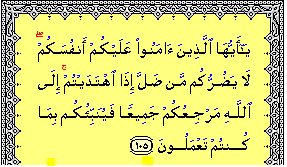
Sayyidi wa sanadi Shaykh Mawlana Mohammad Taqi Usmani (Allah preserve him) said,
‘Recently a person inquired that is it beyond the capacity and effects of remembrance of Allah (dhikr) that sins are abandoned automatically and no additional determination and effort be required to do so?
I told him that my Shaykh (Arif-billah Dr Abdul Hayy Arifi, Allah have mercy on him) used to tell us that the remembrance (dhikr) and tasbihat (wird) provides a form of energy that makes it easy to give up sins and creates a desire to do good actions. It facilitates these two provided one uses his determination to act accordingly.
Understand this by an example. Suppose there is a student suffering from mental debility. A physician prescribes a tonic for him and instructs him to drink it daily to energize his brain. Now if this student assumes that after taking this medicine he does not have to study the textbooks and only taking the tonic will be sufficient to pass the exam then this is an explicit proof of his stupidity. This is because the medicine was prescribed to cure the mental weakness and lead to facilitation of studying and remembering the course material.
Similar is the condition of these dhikr, tasbihat and other awrad. One has to use his determination to abandon sins even after doing these activities.’
Bait al-mukkaram masjid, Karachi, Friday waaz 30th November 1990














